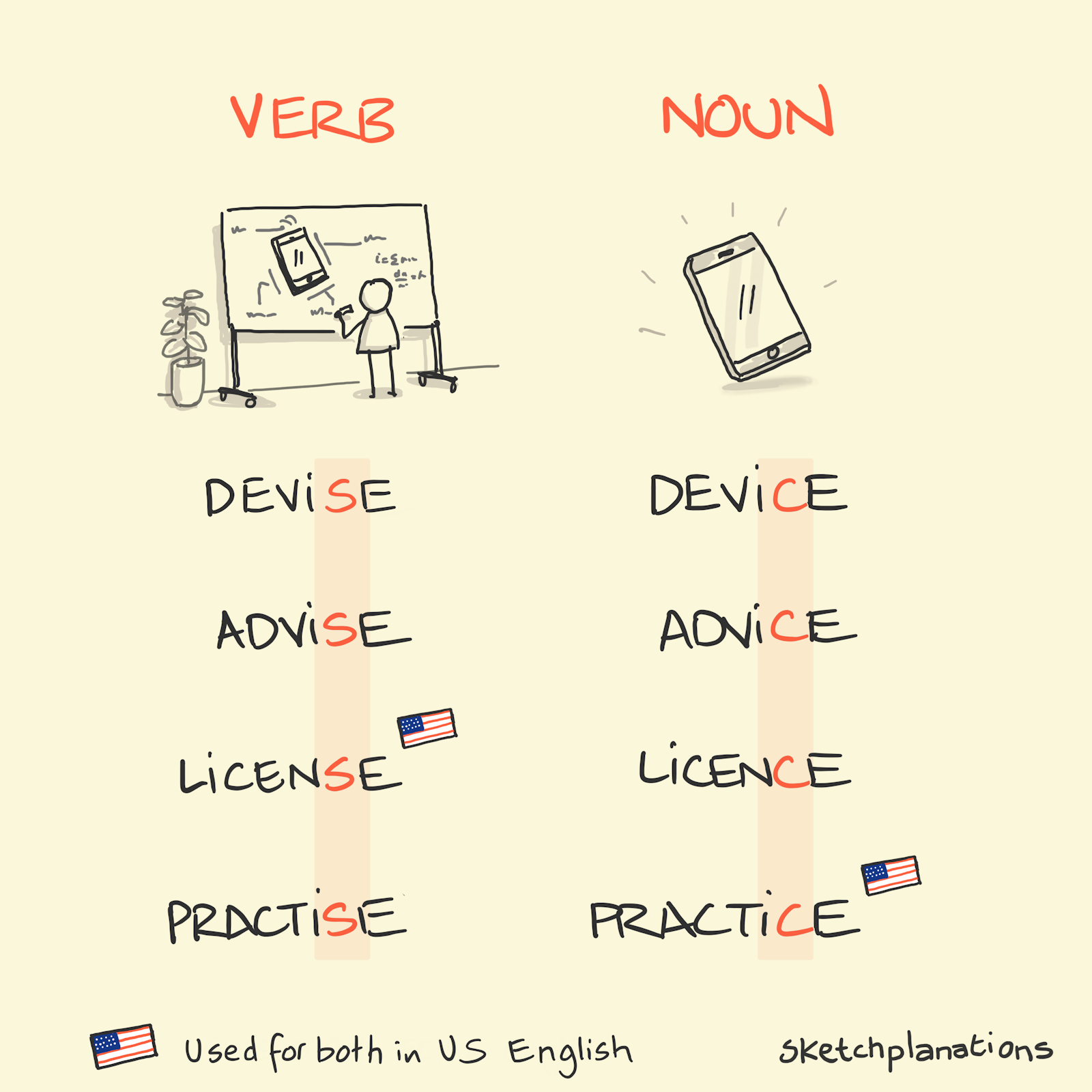
Advise vs advice and other s and c's
Is it advise or advice? Devise or device? And if you're using British English, license or licence, practise or practice?
Verb vs noun
Handily, the general practice is to use an 's' for the verb, and a 'c' for the noun. So advise is something you do, and advice is something you give.
In American English, there is only license and practice for both verbs and nouns. However, in British English, you would you use license if you were licensing someone and what they received would be a licence — with a 'c'. And in British English, you would practise when you went to practice.
Tips to remember - se or -ce
Some places suggest thinking of the '-ice' at the end as ice, which is a noun.
A reader suggested another way to help me remember it think of:
- rise, which is clearly a verb, and
- rice, which is clearly a noun.
Whatever works for you.
License/licence and practise/practice are homophones
Also see:


